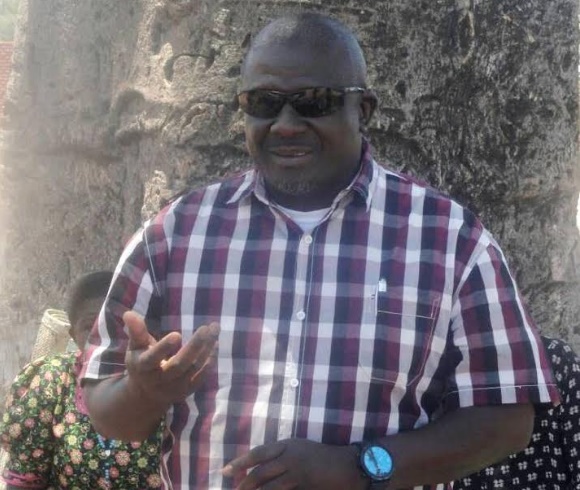Malawi legal scholars fault compulsory HIV testing , police report demanding abortion
An emotive and controversial intellectual exchange ensued at the Faculty of Law boardroom at Chancellor College—the home of academic freedom—in Zomba where legal scholars punched holes on some of the health laws in the country.













The intellectual feast, dubbed students–staff seminar, was organized by the Health, HIV/AIDS legal clinic of the Faculty of Law—a clinic whose mission is to “provide the optimum legal and health educational experience for all stakeholders through advocacy, teaching, research, sensitization and service”.
Making an emotive presentation bordering on abortion was Gift Dorothy Makanje, a law lecturer, supervisor of the clinic and Head of Foundational Law Department.
“Framing of rape and incest indications for legal abortion in Malawi: rethinking the termination of pregnancy bill” was the title of her presentation where she posed a number of controversial questions to the audience on whether they would object to abortion if it turns out that a father has impregnated own biological daughter or in the event that a girl is pregnant as a result of gang rape or defilement. These and many other similar questions generated mixed reactions from the audience.
Deep into her presentation, Makanje pointed out that the Termination of Pregnancy (ToP) bill, yet to be tabled in parliament has a provision which will allow women in such situations to procure abortions “provided that the incident of rape, incest or defilement has been reported to Police, and that the pregnancy has not exceeded sixteen (16) weeks from the date of conception.”
On this, Makanje, who in her presentation said that deaths and/or complications cases, resulting from unsafe abortions, are on the increase in the country, pointed out that such a bill, if passed, will not cure the side effects associated with unsafe abortions in the country.
She added that such provision and other ‘restrictive’ provisions in the bill will not prevent abortions but will rather just impede access to safe abortion services arguing that women who are nevertheless determined to abort will resort to utilizing clandestine and unsafe means of abortion from quacks and risk complications and death.
In the final analysis, Makanje, who cited Malawi Law Commission Report and Guttmacher Report to the extent that over K300 million is spent every year on post abortion care, concluded that the situation, if unchecked, will continue to burden tax payers in treating such women in public hospitals due to post abortions complications.
Responding to the presentation, the audience expressed worries arguing that this provision to have women present police report to the hospital for an abortion to take place would be tantamount to give them a license to abort willy-nilly as other ‘evil minded’ women would falsify their cases for the purpose of obtaining the police report to procure abortion.
In counter argument, Makanje said women are “rational beings” who, in her view, are expected to behave rationally.
Earlier on, Misheck Jere and Nerbet Chirwa, third and second year law students respectively, warmed up the stage for Makanje with their joint presentation, titled “The Prohibition of Compulsory Testing under the HIV/AIDS (Management and Prevention) Act 2017: An Own Goal?”
In their presentation, the lawyers in the making observed that section 18 of the said Act criminalizes compulsory HIV/AIDS testing and noted that this is somehow an ‘own goal’ in the prevention and management of HIV/AIDS. They, among other things, recommended that there should be kind of a way of making HIV/AIDS testing compulsory if we are to make strides in combating the pandemic.
Critiquing this presentation, some legal scholars observed that the right to privacy and to be treated with dignity is a first generational right which must not be overridden by a right to health care, a second generational right.
When all was said and done, the President of the Clinic, James Katunga, a third year law student, was all smiles and congratulated members of the clinic for the well-organized and well patronized function.
In an interview with Nyasa Times, Katunga said the Health, HIV AIDS legal clinic helps students and by extension, members of the general public to understand sticky issues surrounding Health and HIV/AIDS for them to make informed decisions.
“As Health, HIV/AIDS legal clinic, we protect the rights of people in-terms of health and predominantly here [At Chancellor College] we are looking at people living with HIV/AIDS and any other health related issues, we want to protect their rights, they should not be discriminated,” said Katunga.
He added:“You see, students are here [at school] because they want to prepare their future. When they look after themselves and do not get infected or if they get infected and look after themselves properly, they will realize the future they are here for.”
The Faculty of Law at Chancellor College—a constituent college of the University of Malawi— has several legal clinics which are aimed at training students to cultivate advocacy skills as one way of preparing them for their vocation as law practitioners.
The legal clinics include Child rights legal clinic, Disability rights legal clinic, Environmental legal clinic, commercial legal clinic, Gender Rights legal clinic and Bail and Mitigation legal clinic.
Follow and Subscribe Nyasa TV :


